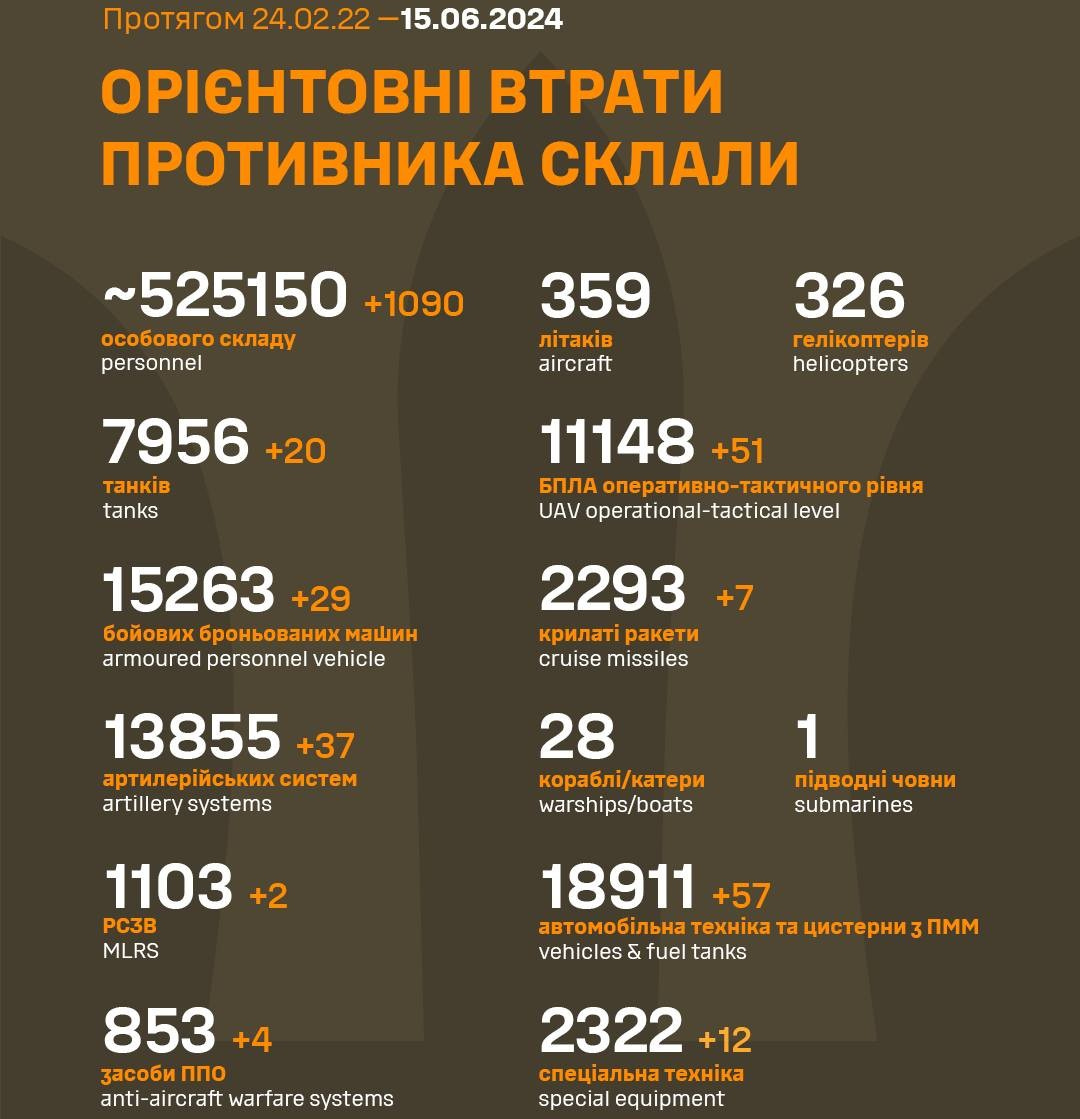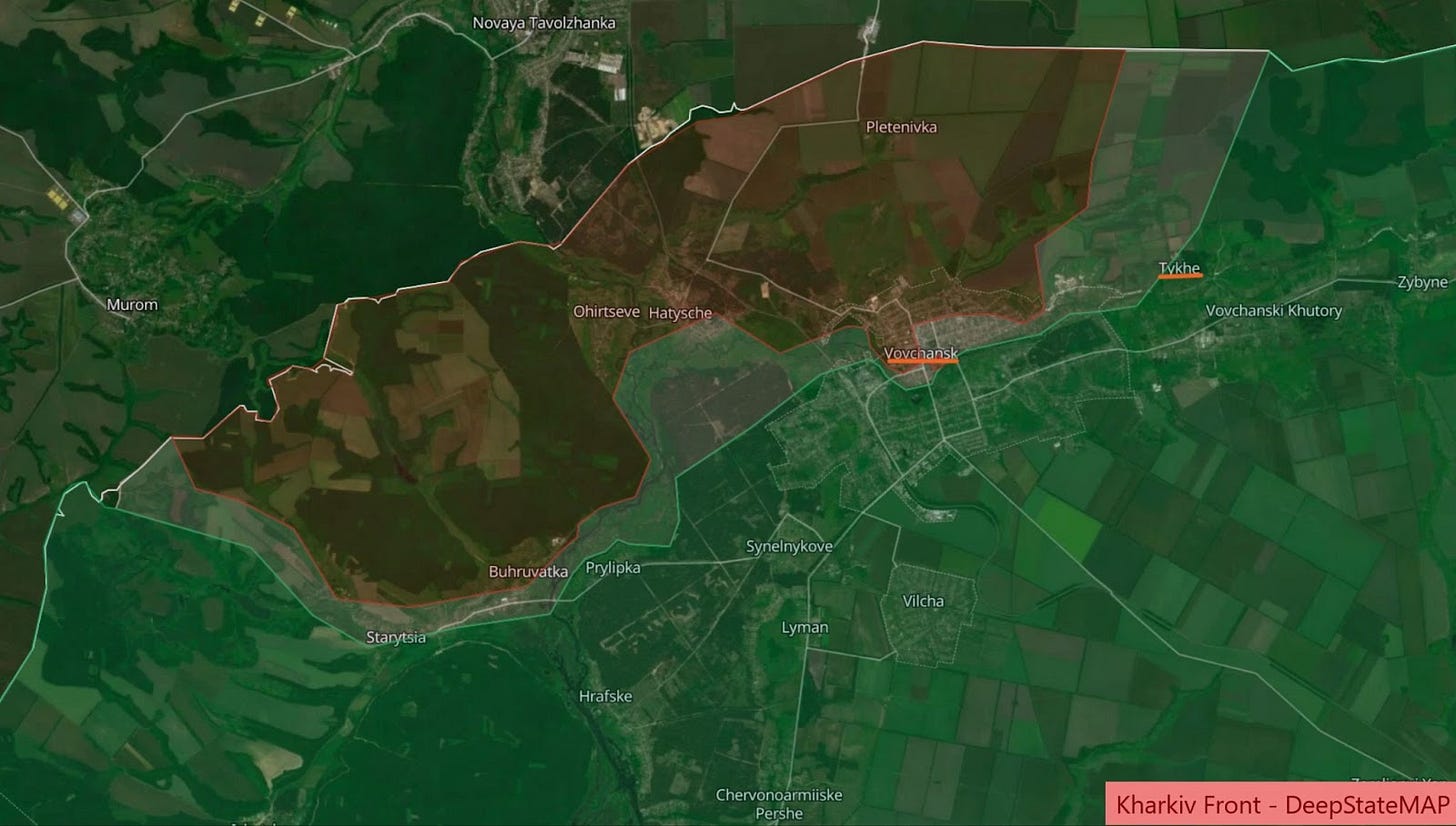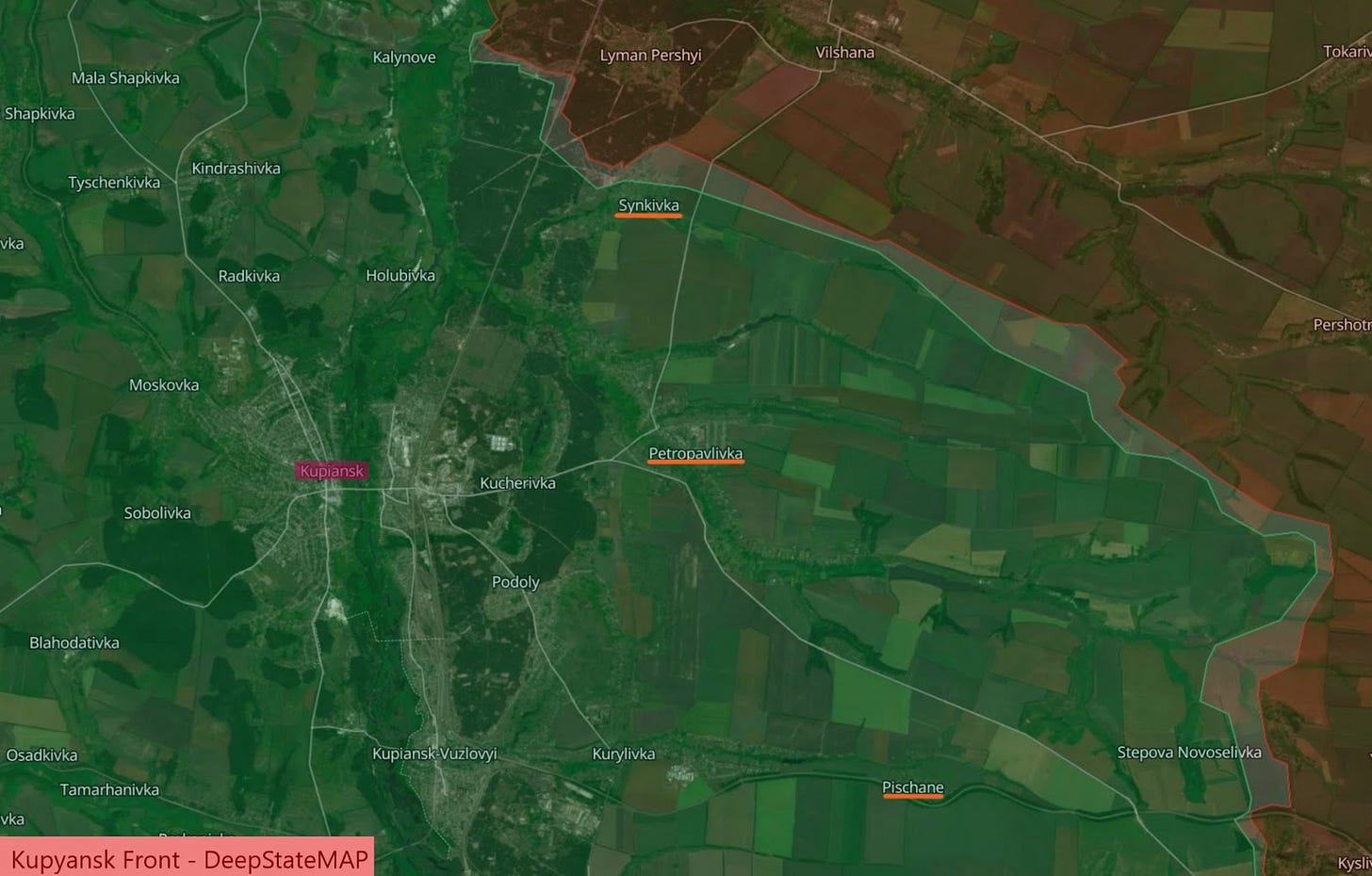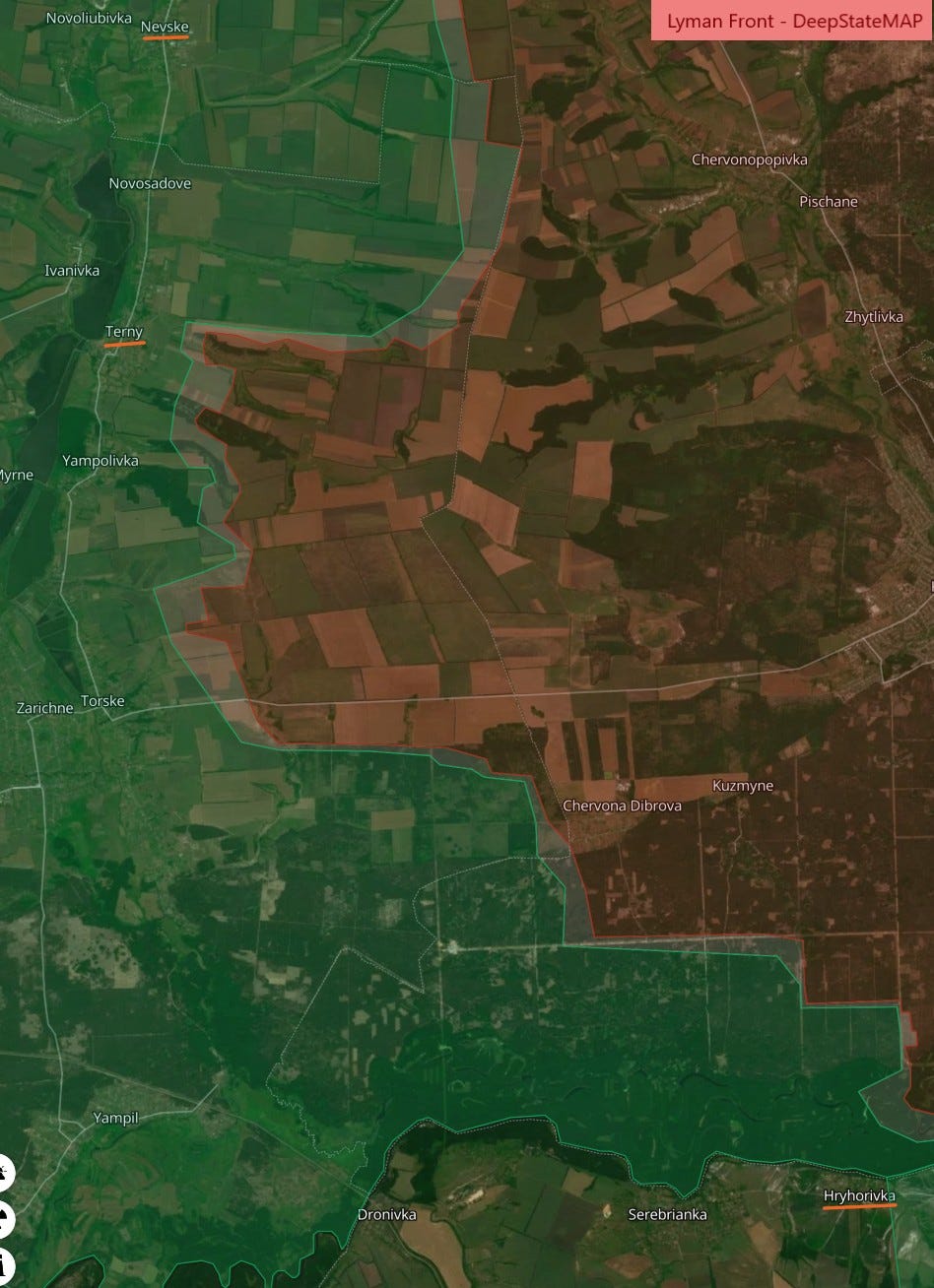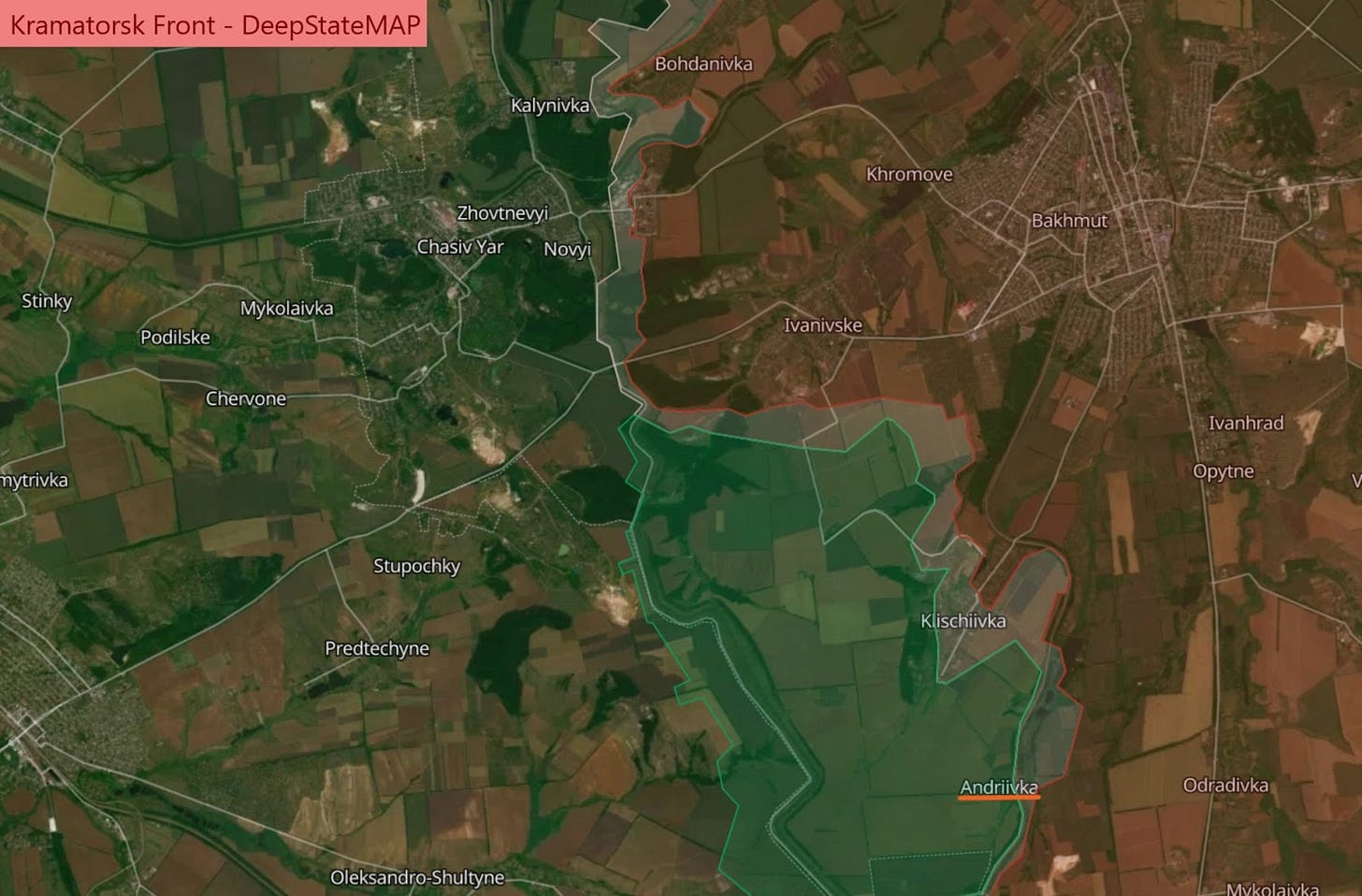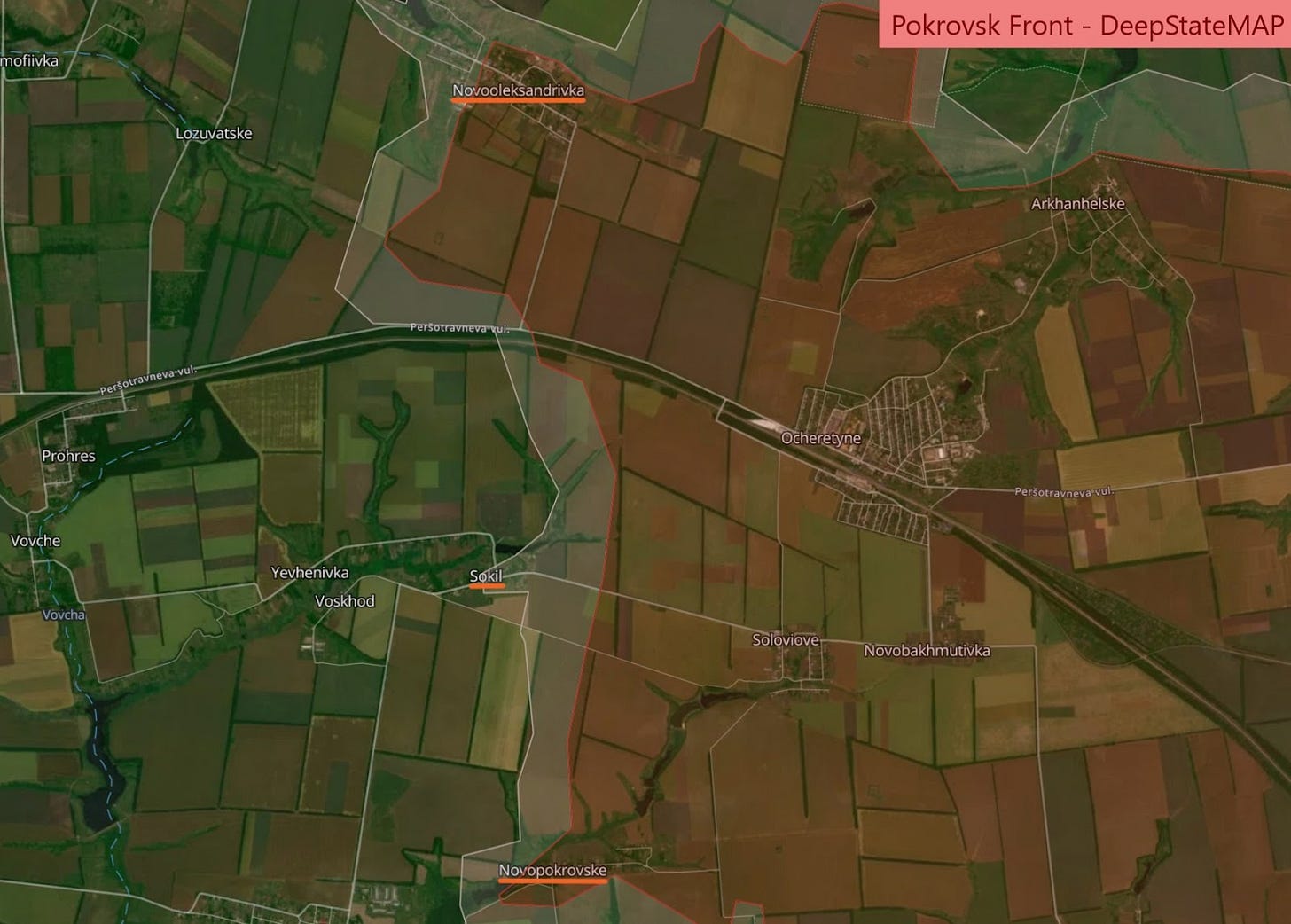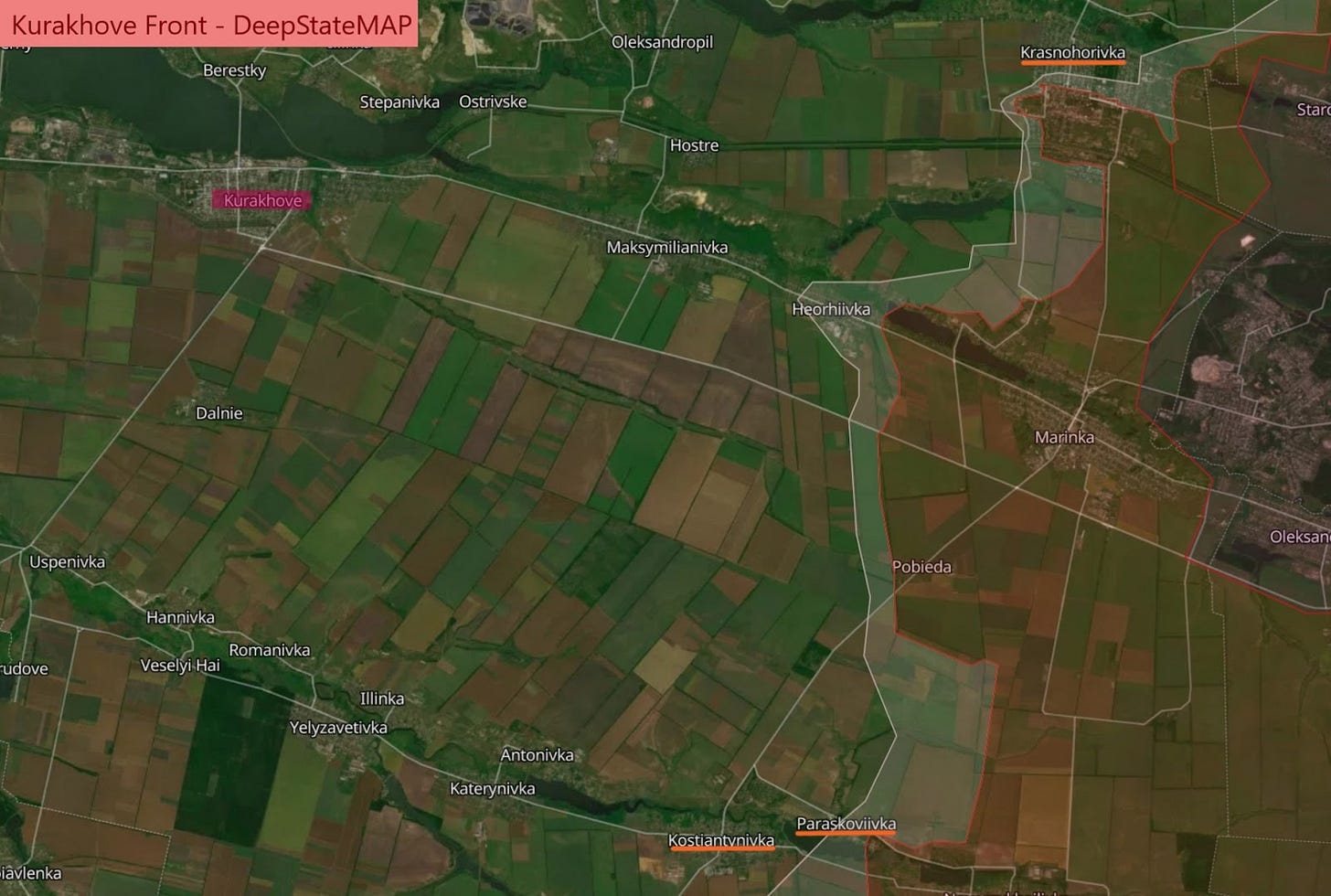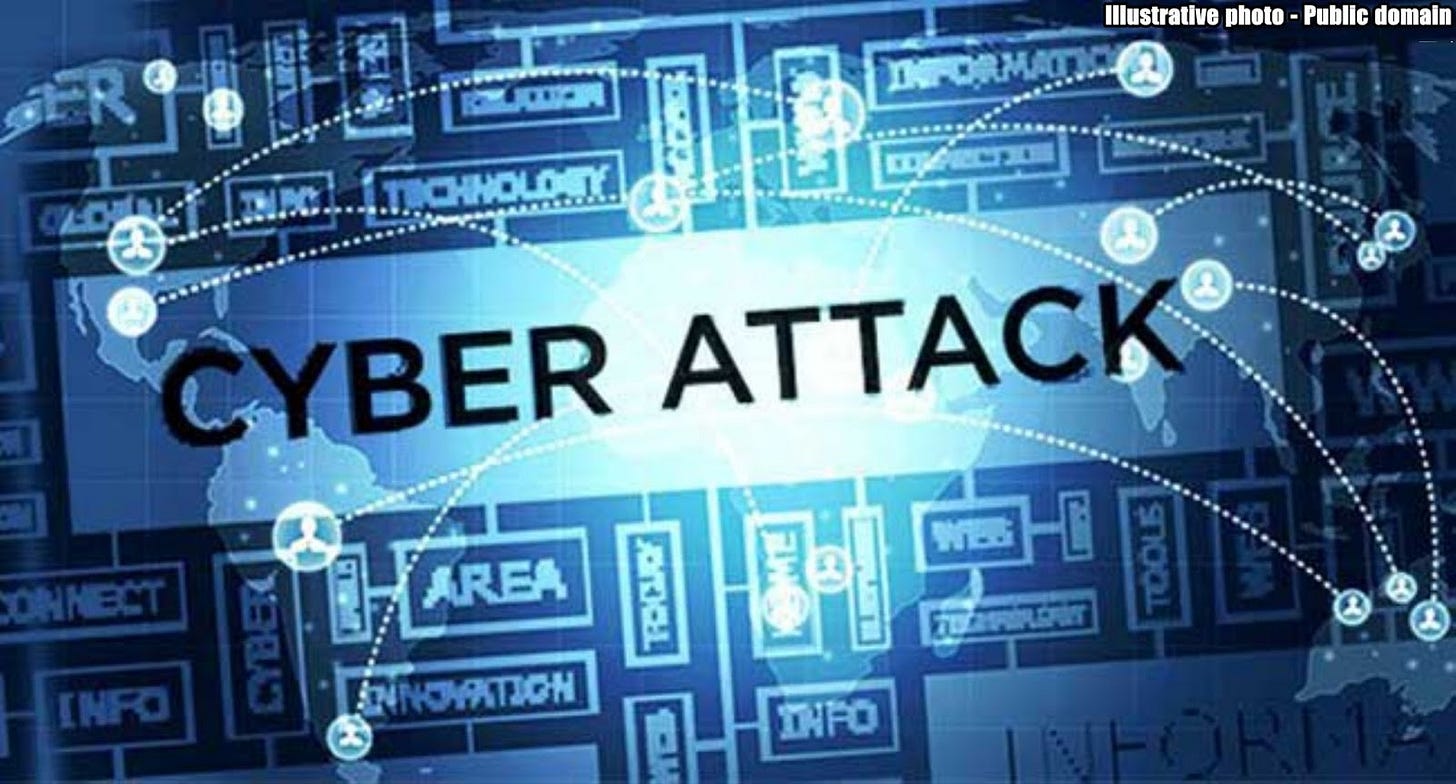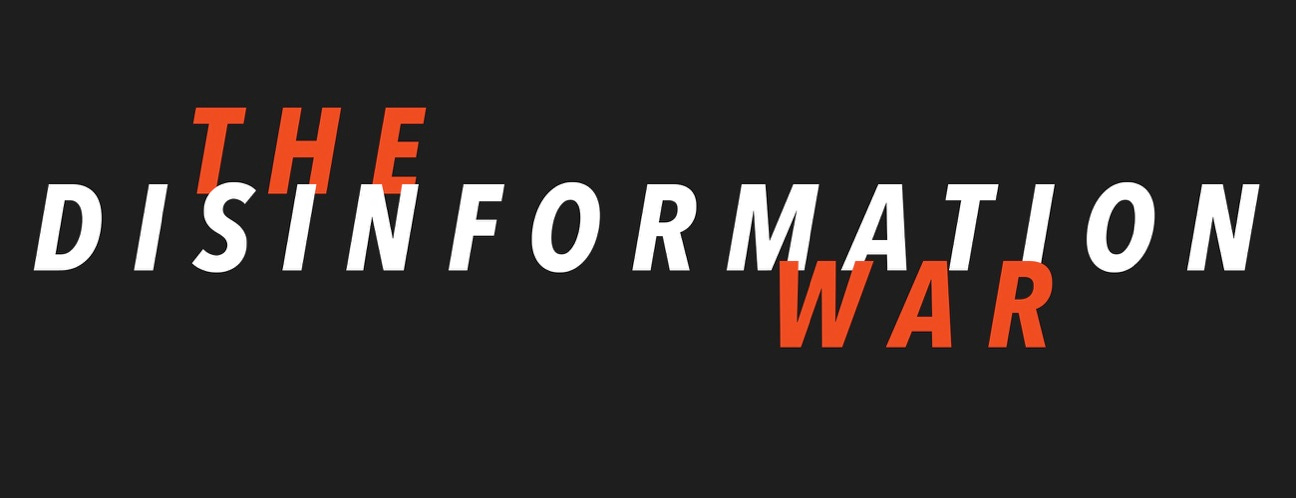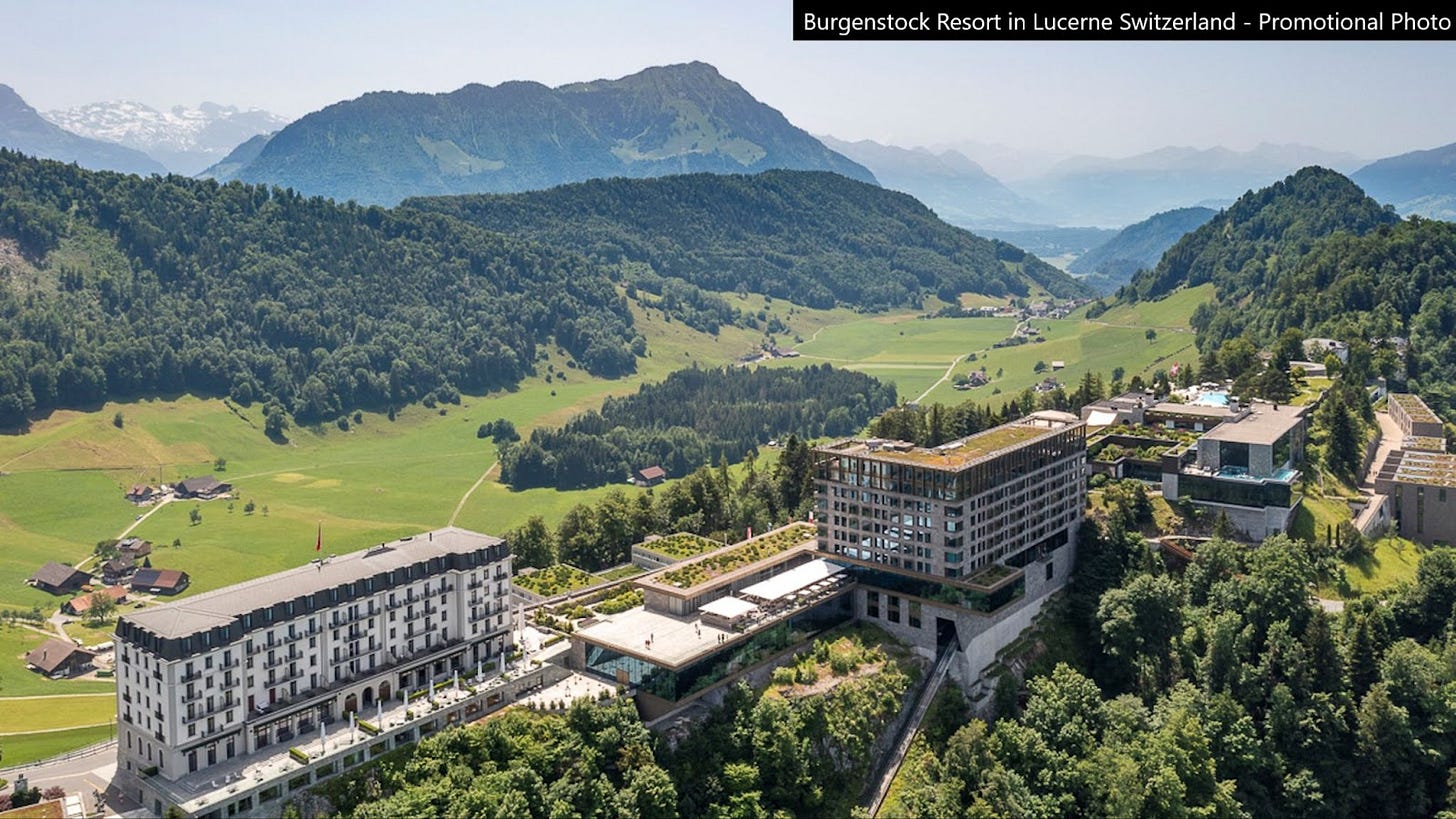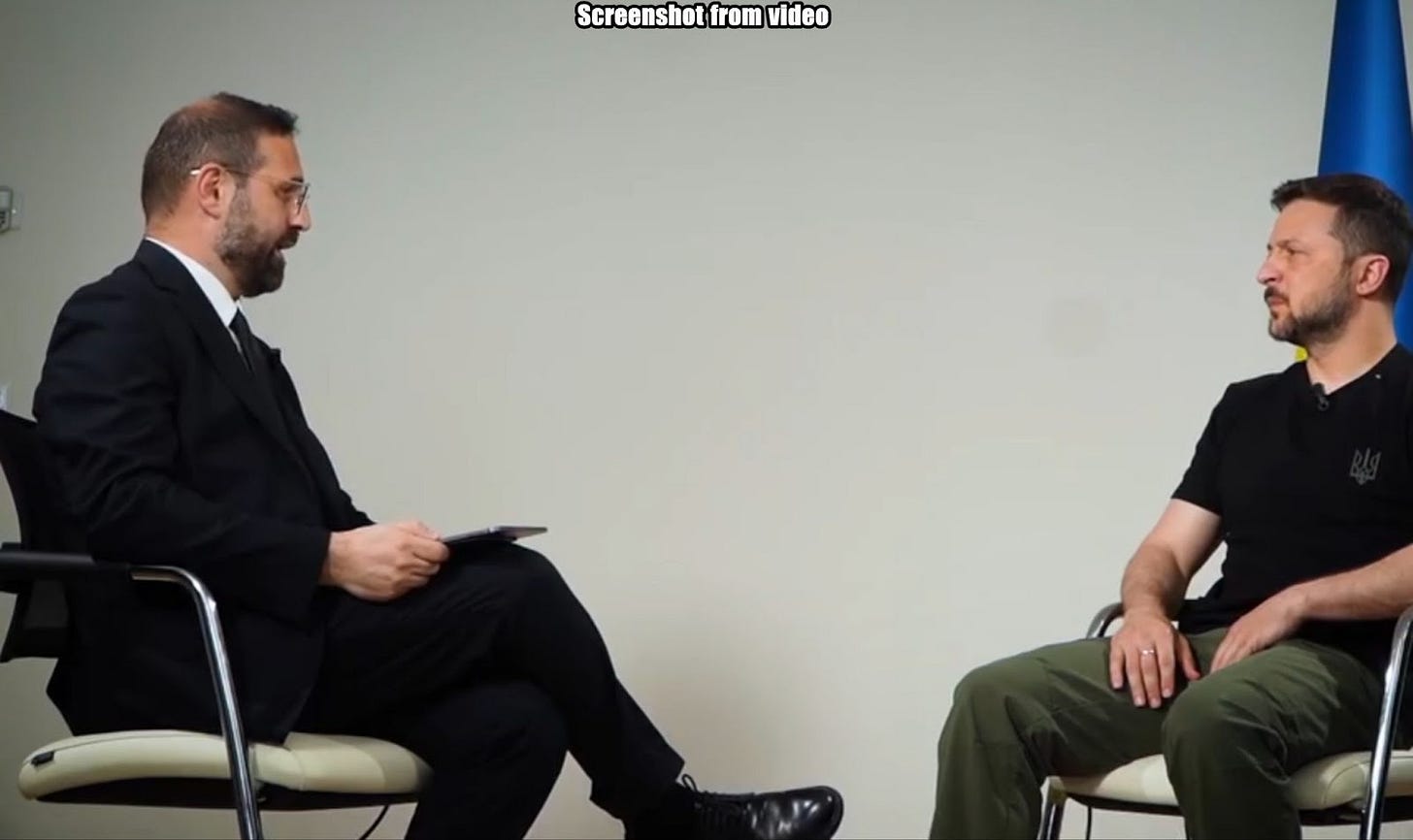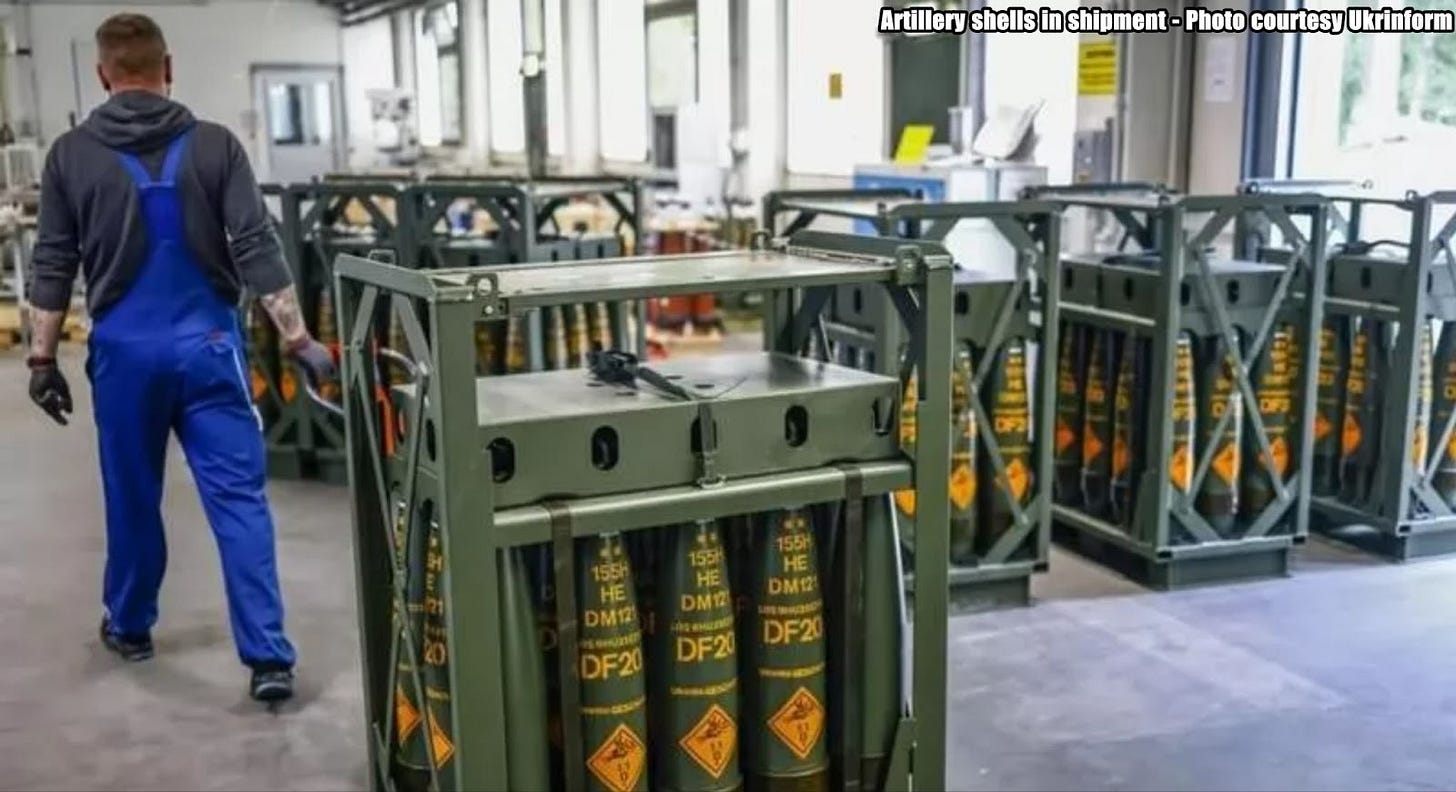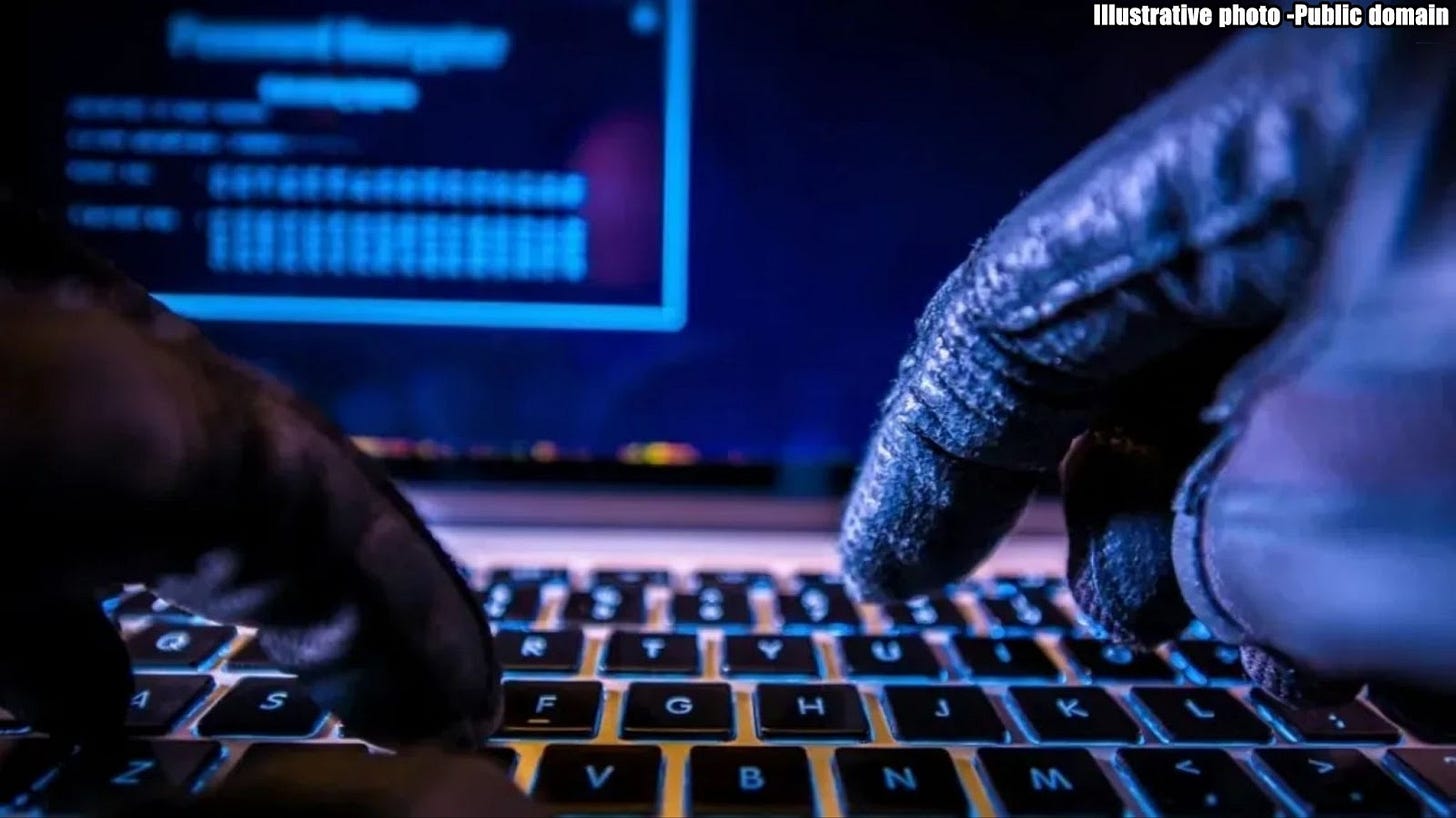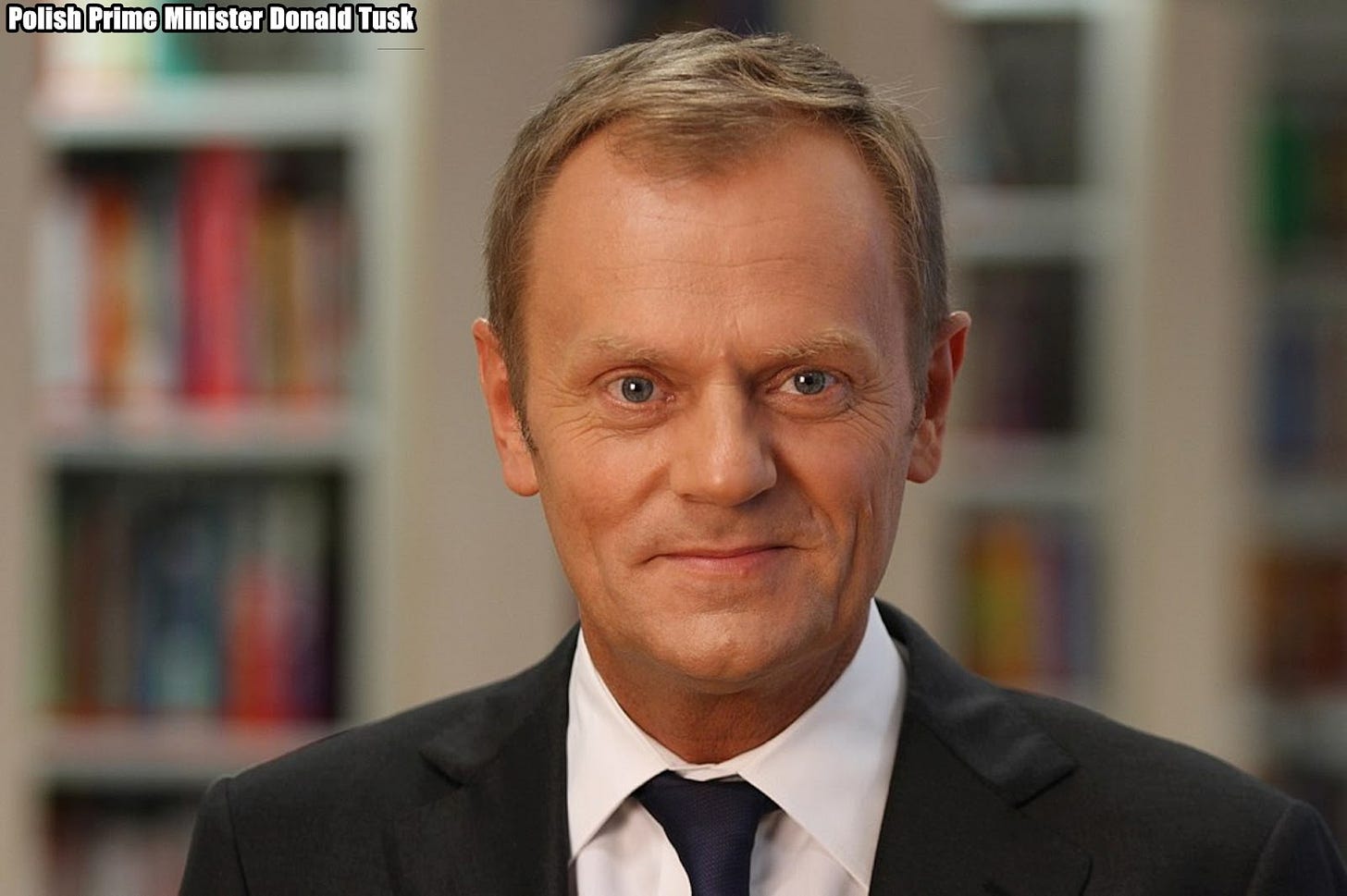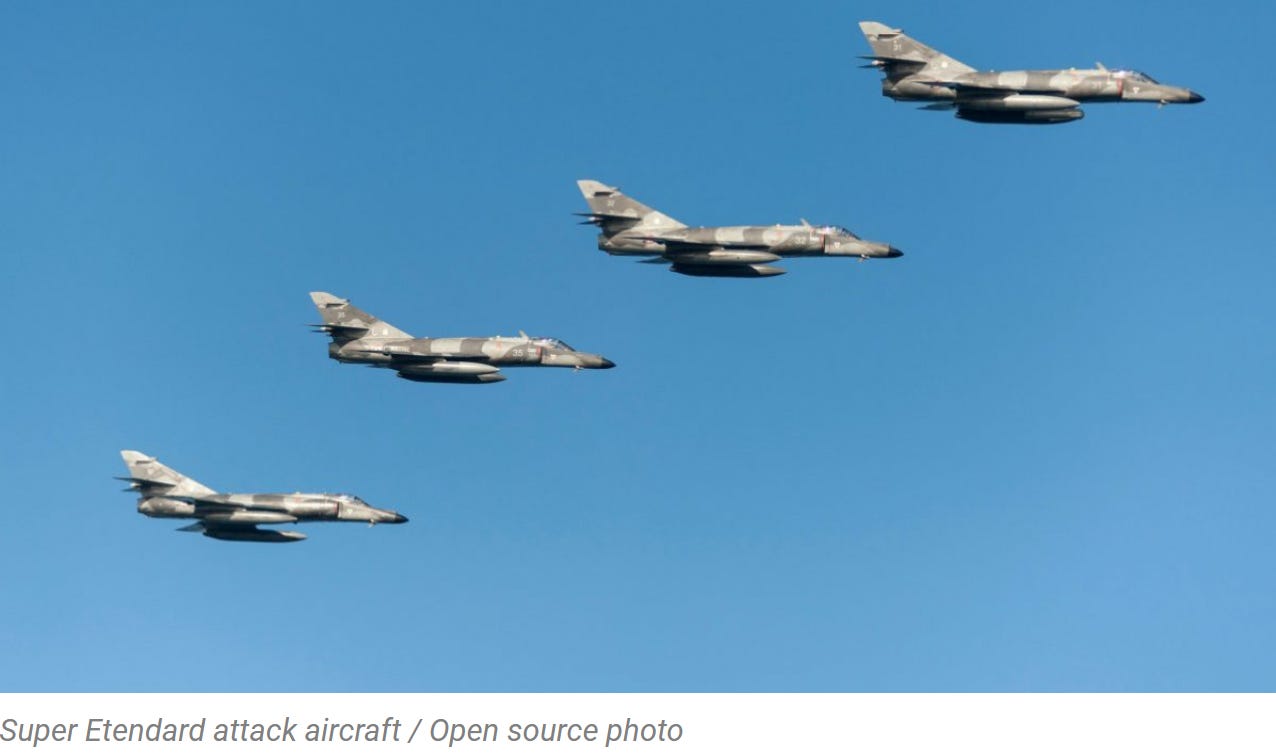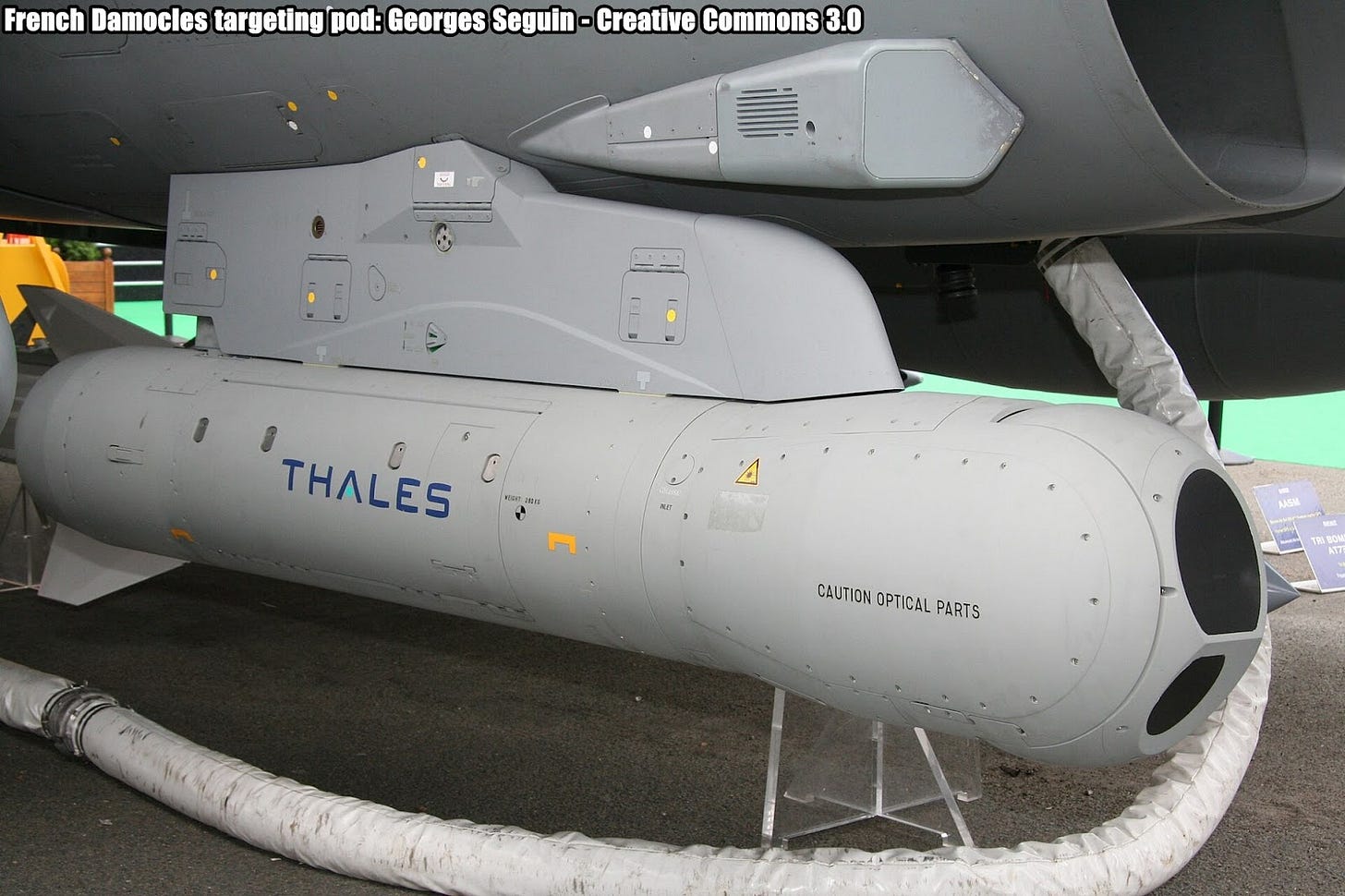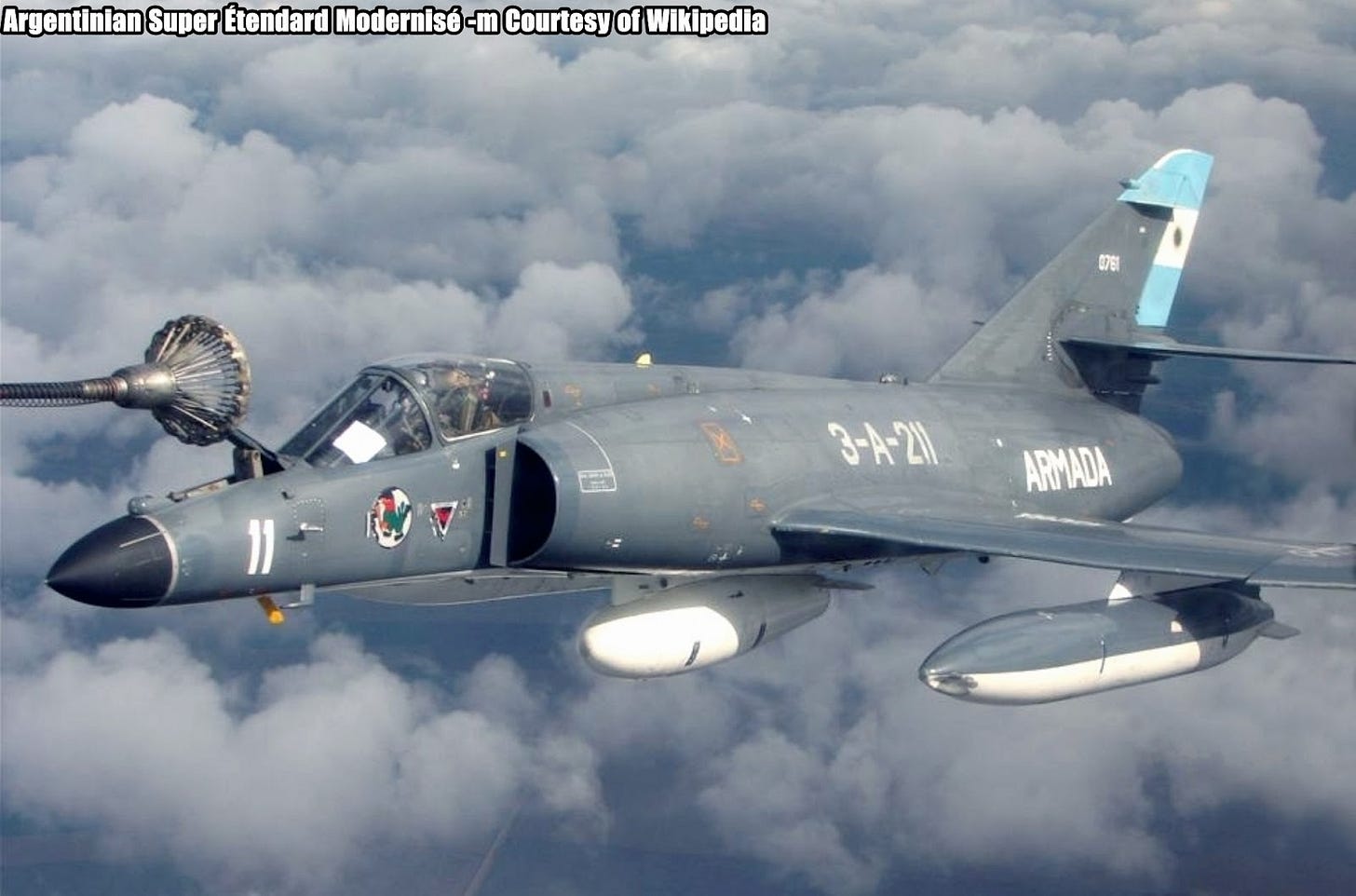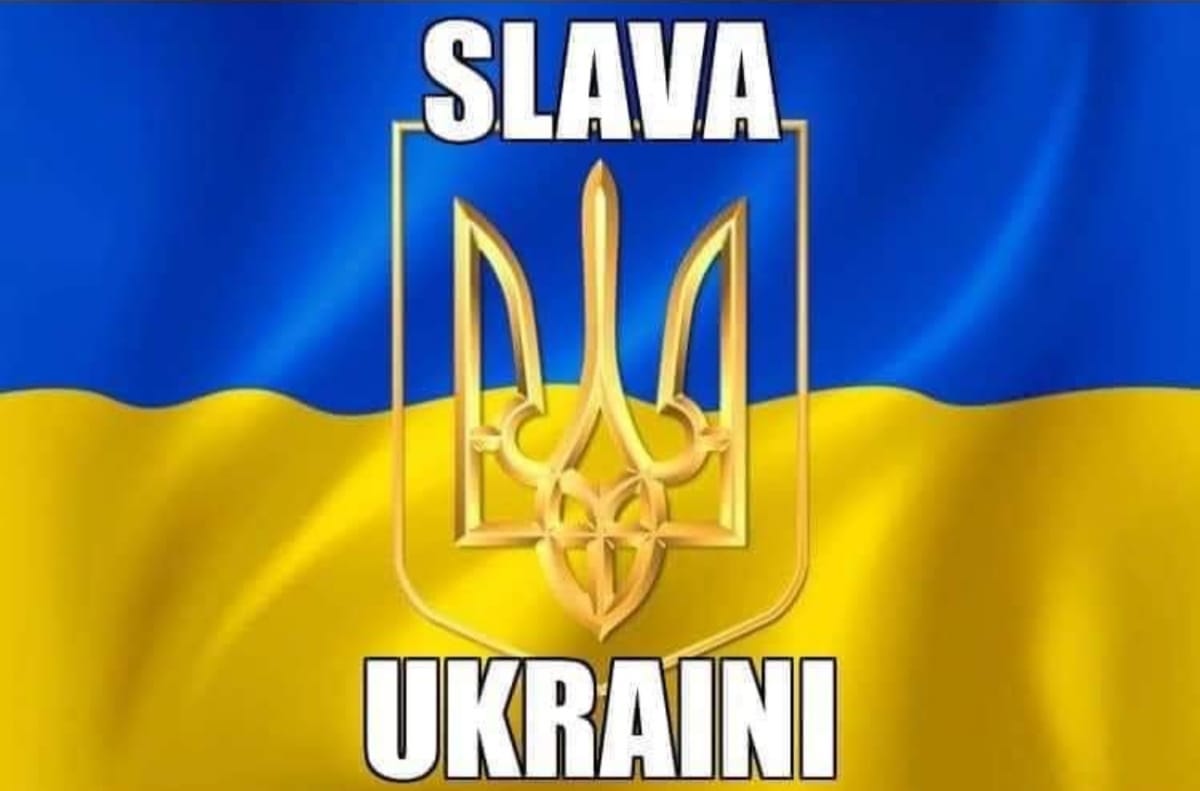On Sunday June 16 due to family commitments I will not be posting a Draft. The Draft will return on Monday June 17. Any major news from the previous day will be reported then. I apologize for the inconvenience
Slava Ukraini! In early 2022 I began a Telegram channel aggregating news from a number of sources daily on the war in Ukraine. Since June 2023 I have provided a daily draft for the Ukraine War Brief Podcast collecting news from over 60 sources daily, much of which forms the basis of the script. While the Podcast is on hiatus I will make this Draft available here both on my own Substack and The People’s Media for those who wish to keep up with events on a daily basis.
ALONG THE CONTACT LINE
GSAFU Morning Report
The General Staff of the Armed Forces of Ukraine in its Operational Information update at 23:00 on June 14 stated that day 843 of the full-scale invasion of the Russian Federation against Ukraine was about to begin.
During the past day, 81 combat engagements took place. Over the past 24 hours, the enemy carried out 17 missile strikes, 38 air strikes, 490 drone strikes and 3,000 artillery strikes across the positions of Ukrainian forces.
At the same time, Ukrainian soldiers continue to inflict losses in manpower and equipment on the occupying troops, exhausting the enemy along the entire front line and continue to disrupt the plans of Russian occupiers to advance deep into the territory of Ukraine.
Defense Forces Air Force and Missile Forces and Artillery attacked 15 personnel concentration areas, three PPOs, three artillery supplies, two ammunition depots and one more important enemy object.
The Khortytsia operational-strategic group
(Responsible for the northeastern part of Ukraine. )
Kharkiv axis: There were 3 unsuccessful Russian assaults, supported by aviation, in the vicinity of Vovchansk and Tykhe. The AFU continues to take measures to strengthen defence positions and borders. The situation is under control.
Kupyansk axis: There were 10 combat engagements in the area of Synkivka, Petropavlivka and Pischane. All attacks of the enemy were repelled.
Lyman axis: Russian troops 9 times attacked our positions in the areas of Hrekivka, Terny and Nevske. The situation is controlled - four clashes are over, and five are still continuing.
Siversk axis: The situation has not experienced significant changes.
Kramatorsk axis: Russia attempted one unsuccessful assault in the area of Andriivka.
The Tavria operational-strategic group
(Responsible for the central-eastern and southeastern part of Ukraine.)
Pokrovsk axis: The enemy attacked Ukrainian defenders 29 times repeatedly in the Novooleksandrivka, Sokil and Novopokrovske. The situation is tense, but controlled by the Defense Forces.
Kurakhove axis: Russian forces made 20 assaults in the vicinity of Krasnogorivka, Paraskoviyivka and Konstantinivka
Vremika axis: The situation has not experienced significant changes.
Orikhiv axis: The situation has not experienced significant changes.
The Odesa operational-strategic group
(Responsible for Kherson, Qırım, (also known as Crimea) and the Black Sea.)
Prydniprovsk axis: The situation has not experienced significant changes.
TEMPORARILY OCCUPIED TERRITORIES
Nothing to report.
THE HOME FRONT
ICC probes cyberattacks on Ukraine's civilian infrastructure as possible war crimes
Prosecutors at the International Criminal Court (ICC) are investigating alleged Russian cyberattacks on Ukrainian civilian infrastructure as possible war crimes, Reuters reported on Friday, June 14, citing four sources familiar with the case
It is the first confirmation that attacks in cyberspace are being investigated by international prosecutors, which could lead to arrest warrants if enough evidence is gathered.
According to one of the officials, the probe is examining attacks on infrastructure that endangered lives by disrupting power and water supplies, cutting connections to emergency responders or knocking out mobile data services that transmit air raid warnings.
ICC prosecutors are working alongside Ukrainian teams to investigate "cyberattacks committed from the beginning of the full-scale invasion" in February 2022, said the official, who declined to be named because the probe is not finished.
Moscow has previously denied that it carries out cyberattacks, and officials have cast such accusations as attempts to incite anti-Russian sentiment.
At least four major attacks on energy infrastructure are being examined, two sources with knowledge of the investigation told Reuters.
A senior source said one group of Russian hackers in the ICC's crosshairs is known in cybersecurity research circles as "Sandworm", and is believed by Ukrainian officials and cyber experts to be linked to Russian military intelligence.
Sandworm is suspected of a string of high-profile attacks, including a successful 2015 attack on a power grid in western Ukraine – one of the first of its kind, according to cybersecurity researchers.
RUSSIAN WORLD
Western Media continues to buy into Putin’s feigned interest in Peace in Ukraine
The Institute for the Study of War (ISW), a US think tank, on June 14 published an article entitled “WHY PUTIN REMAINS UNINTERESTED IN MEANINGFUL NEGOTIATIONS WITH UKRAINE”
In the article the group stated that Western media continues to report that Russian President Vladimir Putin is interested in a negotiated ceasefire in Ukraine, although Kremlin rhetoric and Russian military actions illustrate that Putin remains uninterested in meaningful negotiations and any settlement that would prevent him from pursuing the destruction of an independent Ukrainian state.
The Kremlin routinely feigns interest in meaningful negotiations as part of a longstanding information operation that aims to persuade the West to make concessions on Ukrainian territorial integrity and sovereignty, and it is unclear if the unspecified Russian sources talking to Western media are advancing these efforts or accurately portraying Putin's interests and viewpoints.
Russian sources that have spoken to Western media have also offered mutually contradictory characterizations of Putin's stance on negotiations. Reuters reported that a Russian source stated that Putin aims to take as much territory as possible in order to compel Ukrainian President Volodymyr Zelenskyy to negotiate, but another Russian source assessed that Putin is unwilling to negotiate with Zelenskyy.
These Russian sources notably highlighted territorial concessions as part of Putin's alleged envisioned ceasefire but have sparsely addressed the wider strategic objectives of Putin's war in Ukraine. Reuters reported that its Russian sources stated that Putin views Russia maintaining control over currently occupied Ukrainian territory as a non-negotiable basis for negotiations, and previous Western reporting about Putin's openness to negotiations has similarly highlighted Russian territorial desires.
A ceasefire does not preclude Russia from resuming its offensive campaign to destroy Ukrainian statehood, and Russia would use any ceasefire to prepare for future offensive operations within Ukraine.
There is no reason to assess that the Kremlin will respect any new agreement obliging Russia to not violate Ukrainian sovereignty or territorial integrity. The report went on to state, citing Russia’s actions in the past. A ceasefire would provide Russia with the opportunity to reconstitute degraded forces, divert manpower to large-scale expansion and reform efforts instead of ongoing fighting in Ukraine, and allow Russia to further mobilise its defence industrial base (DIB) without the constraints of immediate operational requirements in Ukraine.
Russia is currently preparing for the possibility of a conventional war with NATO, and the Kremlin will likely view anything short of Ukrainian capitulation as an existential threat to Russia's ability to fight such a war.
ISW concludes that The Kremlin will continue to feign interest in negotiations at critical moments in the war to influence Western decision-making on support for Ukraine and to continue efforts to extract preemptive concessions from the West.
NEWS WORLDWIDE
100 States to take part in Global Peace Summit
Ukrainian President Volodymyr Zelensky announced on Twitter that 100 states and international organizations from all continents and all parts of the world have registered to take part in the Global Peace Summit hosted by Switzerland this weekend.
“Today, the Global Peace Summit begins with the registered 100 states and international organizations coming from all continents and all parts of the world, representing different perspectives but united by respect to international law and one another.
Latin America, the Middle East and Asia, Africa, Europe, the Pacific, Australia, North America—all of them are present. The Peace Summit provides an opportunity for every country to be heard and demonstrate global leadership.
Together, we are making the first step toward just peace based on the UN Charter and fundamental principles of international law.”
The Summit is taking place at the Burgenstock Resort in Lucerne Switzerland.
The path to peace is long because Ukraine is dealing with terrorists
President of Ukraine Volodymyr Zelenskyy said this in an interview with the Italian channel SkyTG24, which he posted on Facebook on the eve of the opening of the inaugural Peace Summit in Switzerland, Ukrinform reports.
"The road to peace is a long one because we are dealing with terrorists, and we must follow the right path, based on the UN Charter and international law. We must have the same basis. And we are doing this without breaking the law, without violating people's rights," Zelenskyy said.
Yesterday, the President of Ukraine arrived in Switzerland to participate in the summit.
As reported, the first Peace Summit starts today in the Swiss resort of Burgenstock with the participation of 100 delegations - 92 countries and eight international organisations. The conference will discuss nuclear security, food security, and the humanitarian dimension.
Ammunition under Czech initiative will start arriving in Ukraine in the coming days
In an interview with Radio Liberty, the Minister of Foreign Affairs of the Czech Republic, Jan Lipavsky, said that ammunition for the Ukrainian Defense Forces, provided for by the Czech initiative, will start arriving in Ukraine in a matter of days.
"The first shipments of ammunition are arriving in Ukraine these days. So, this year, we will be able to purchase and continuously supply a significant amount of ammunition. Until now, through various channels, the Czech Republic has delivered more than 1 million shells to Ukraine," said the Czech minister
Lipavsky also emphasised that 20 countries have joined the Czech initiative to purchase ammunition for the Defense Forces of Ukraine.
The Minister stated five nations Germany, the Netherlands, Denmark, Portugal, and Canada,have already paid their contribution and the production agreements with their funds are already being implemented.
Pro-Russian hackers continue attacks on Swiss government websites on the day of the Peace Summit
On Saturday, a pro-Russian hacker group continued to attack the websites of the Swiss federal government and organisations involved in the Peace Summit, UNN reports, citing reports from the Swiss federal cybersecurity agency NCSC, Swiss publications watson and Keystone-SDA.
According to the NCSC, the attacks continued before the start of the Peace Summit in Burgenstock.
"Today, on Saturday, before the start of the high-level conference on peace in Ukraine, overload attacks continue as expected. Federal websites and organisations participating in the conference remain the targets of the attacks. The Federal Office for Cybersecurity is monitoring the situation and is in contact with the affected organisations," the NCSC said in a statement.
These attacks, the agency said, "do not affect the safety of the victims or the conference." "Due to DDoS attacks, some websites are temporarily unavailable. Such attacks do not cause direct damage to the IT infrastructure," the statement said.
A group called "NoName057(16)" is responsible for the attacks, NCSC spokeswoman Gisela Kipfer told Keystone-SDA upon request. As a result of the attacks, the sites may be temporarily unavailable.
Warsaw establishes commission to investigate Russian, Belarusian influence
A special government commission set up to investigate Russian and Belarusian influence in Poland has started its work, Polish Prime Minister Donald Tusk said at a press conference on June 5. The Kyiv Independent reports.
The commission, led by the head of the Military Counterintelligence Service, General Jarosław Stróżyk, included 11 academics in the fields of social and political science and communication, along with former members of the military and diplomatic corps. They were appointed at the suggestion of relevant ministers.
The commission, described as a nonpartisan body of experts seeking to protect national security, has been given two months to evaluate events between 2004 and 2024 and produce a report on their impact on Poland's current and future security. The report will be given to the prosecutor's office.
Polish officials maintain that Poland is facing intensified hybrid attacks from Russia and Belarus, including rising pressure from the migration crisis at the Belarus-Poland border, alleged acts of sabotage within the country, and cyberattacks.
The Polish authorities announced on June 3 that they had arrested 18 Polish, Belarusian, and Ukrainian citizens over the past six months on suspicion of pursuing hostile activities or sabotage in collaboration with Russia or Belarus.
Tusk ordered the establishment of a parliamentary investigatory commission on May 10. The Polish parliament, the Sejm, was supposed to have formed the commission on May 21. But after Speaker Szymon Holownia said he doubted such a body was needed, Tusk announced he would set up his own government commission.
MILITARY & TECH
The Netherlands to provide Ukraine with 3 Patriot launchers and radars
The Netherlands will provide Ukraine with three launchers and a radar station for the Patriot SAM system. Mark Rutte, Prime Minister of the Netherlands, announced on Twitter.
His statement was made at a summit on recovery and reconstruction in Ukraine held in Berlin. The Netherlands is contributing a new package of €138 million for crucial energy infrastructure repairs, humanitarian aid, and reconstruction initiatives by businesses.
“But there’s little point in reconstruction without robust armed forces. So we will also keep providing military support. We are discussing the supply of a Patriot system to Ukraine with international partners. The Netherlands has made a radar and three launch systems available for this purpose,” Mark Rutte stated.
He also announced an increase in support for Ukraine:
“We are ramping up our support in order to bolster Ukraine’s economy and society, and to ensure it can continue to withstand Russia’s aggression.”
The Argentine government intends to transfer five Super Etendard carrier-based attack aircraft to Ukraine
The Argentine publication Infobae reports on the plan to strengthen the Armed Forces of Ukraine with these aircraft, noting that it has already received support from the government and President Javier Milei.
Argentina is not compromising its defence capability, as all Super Etendards were retired in 2023. The history of these aircraft is directly tied to the Falklands War. Defense Express examines this aircraft and its capabilities.
The discussion concerns a carrier aircraft from Dassault, classified either as a fighter-bomber or an attack aircraft. It was created in the early 1970s based on the Etendard IV, which was designed in the 1950s and entered service in the 1960s.
Therefore, the Super Etendard is a classic representative of aviation from the early 1960s, with a non-afterburning Snecma Atar 9K-50 engine producing 49 kN, which enabled supersonic speeds up to 1205 km/h.
The aircraft has a wing span of 9.6 metres, with a maximum takeoff weight of 12,000 kg (empty weight 6,500 kg), and a maximum useful load of 2,100 kg at 6 suspension points.
The aircraft's primary specialisation was the destruction of enemy ships.
It should be noted that the five modernised Super Etendard carrier-based attack aircraft have received a new radar system, Anemone, which has increased the detection range of maritime targets to 200 km. They also received an electronic warfare system, an updated navigation system, and an optical targeting station for the use of the high-precision weapon Damocles.
It is worth adding that in France, the Super Etendard Modernise aircraft flew until 2016 before being replaced by the Rafale M.
And against this backdrop, one can pose a rather pragmatic question: are five Super Etendards worth introducing as another type of aircraft into the Ukrainian Air Force?
Given the current shortage of pilots and technicians, as well as the logical desire to avoid creating a diverse fleet of aircraft.
This is especially pertinent considering the promised 2000-5, which are indeed multi-role fighters. Additionally, in a situation where even the Gripen has been postponed due to a focus on the F-16, the notion of transforming the Super Etendard into a 4+ generation aircraft appears not very effective.
_ _ _
Grumpy here - I feel the need to disagree with this assessment somewhat. Firstly the Mirage 2000-5 in French service were optimised in a purely air superiority role, while there is speculation that Dassault will convert French Mirage 2000-5s to multirole this has not been confirmed.
The Super Étendard Modernisé (SEM) has been used by France in the strike role right up until their retirement in 2016. Additionally the aircraft is compatible with the Damocles (targeting pod) which can give the SEM stand off ability.
And finally The upgraded SEM is capable of targeting naval vessels from 200 KM. This would be a great deterrent to the already timid Black Sea Fleet
That’s it for today’s Draft folks if you would like to keep up with events in Ukraine daily please consider subscribing, its free!
Feel free to share this update with your friends. Heroyam Slava!







